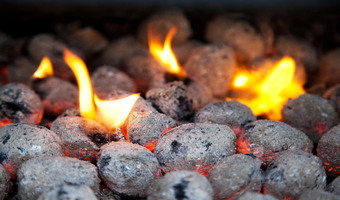 A project that is recycling livestock waste in three Kisumu slums is offering vital lessons on recycling and putting waste into proper use at a time when the waste eyesore in Kenya’s slums is so entrenched that about 75 percent of all waste is not utilized.
A project that is recycling livestock waste in three Kisumu slums is offering vital lessons on recycling and putting waste into proper use at a time when the waste eyesore in Kenya’s slums is so entrenched that about 75 percent of all waste is not utilized.
Keeping livestock in the city is illegal in Kenya, but many urban households rely on them for income and security. However, in urban areas there is little land available to absorb the manure, and many slum dwellers are unaware of how to use dung produced by their livestock.
With no regular waste removal in Kisumu, the piling up of manure also presents a health hazard, contributing to the transfer of zoonotic disease, rain water often washes manure and other waste into the city's water supply. Traditionally pastoralist communities dry dung and use it as fuel. While some urban households also use dung, for example as a mosquito repellent, or to support outside walls, the use of dung as fuel had, until recently, not been adapted to meet the needs of urban households.
In Kisumu, however, that situation is now changing, thanks to a project managed by a private company, Lagrotech consultants, with support from the DFID-funded Livestock Production Programme. The project has investigated ways to improve the management of organic waste in three slum areas of Kisumu, based on the development of some simple, farmer-friendly technologies that are now turning Kisumu's waste into a convenient, and marketable fuel. With charcoal expensive and in short supply, slum dwellers have welcomed the alternatives.
Six types of waste-based fuel briquettes have been developed and tested, using a variety of raw materials including sun-dried dung, sawdust, charcoal dust, clay and water. Combinations were tested to produce as little smoke as possible and to make the briquettes safe and efficient for home cooking. The briquettes are made by rolling the combined ingredients, with water, into a ball, for home use, or by moulding the mixture into standard cakes to sell, using plastic piping as a mould.
In an initial study conducted by Lagrotech, it was revealed that waste produced in Kisumu could potentially earn over Sh12million each year from waste-based fuel, sold at half the cost of commercial fuel. In tests, the briquettes performed nearly as well as commercial charcoal, and as a result, many families involved in developing and testing the fuel briquettes have switched from commercial charcoal to their own organic mix. The dung and charcoal mix was the most popular, emitting the least smoke and burning at a reasonable speed.
Most communities are now actively processing and using the fuel, and some families have created their own small business, generating regular income by selling their surplus briquettes at Sh10 Kenyan shillings for 2 kg. 'Contact' farmers have been used on a regular basis to further promote these techniques by engaging other urban farmers in the process of making briquettes both for home use and for entrepreneurial enterprise.
















Comments powered by CComment